“You see, we may encounter many defeats, but we must not be defeated. It may even be necessary to encounter the defeat, so that we can know who we are.” – Maya Angelou
WASHINGTON — ESPN’s new race, sports and culture site The Undefeated draws its name from the Maya Angelou quotation above, a longer version of which appears on the site’s masthead. The quote is intended to speak of the struggle of African-Americans on a macro scale throughout the history of the United States, but it also reflects the site’s own beginnings, its struggles to become fully realized, and its eventual launch.
The Undefeated was originally announced under the stewardship of Jason Whitlock, a veteran columnist for the Kansas City Star, FOX Sports and ESPN. The Undefeated never launched under its original leader for many reasons, chronicled extensively and publicly by former Deadspin writer and current New York Times David Carr Fellow Greg Howard. At the time of Howard’s last entry, in October 2015, there was good reason to believe from the outside that the site was never going to get off the ground.
But while the site’s public image was suffering, veteran Washington newsman Kevin Merida decided to leave his position as managing editor of The Washington Post to become The Undefeated’s new Editor-in-Chief. It wasn’t a jump he expected to make, having worked his way up to such a prominent position at his hometown paper.
“You have a different connection with the place, and as an editor, you have a different perspective on it, because you grew up here,” Merida says. “You know people. You have a greater sense of responsibility for it.”
After growing up in the Seat Pleasant and Capitol Heights area and spending 20 years at The Post, Merida knew what he had. He wasn’t as sure what he was getting into.
“I wanted to ask about all of the things that had been out in the media, all of the ways in which The Undefeated had been described, and kind of get the take of ESPN leadership on all of that,” he says of the vetting process. “I wanted to just kind of assure myself … that this was really something that had the kind of commitment behind it.”
Senior writer Mike Wise, also formerly of The Post, was one of the early hires who saw the shift in leadership firsthand. He says now it’s hard to imagine what the site would have looked like without the further investment in personnel, which now includes 30 staff members in D.C., four at ESPN headquarters in Bristol, Connecticut, and another half-dozen working remotely around the country.
“I don’t know if I could say what the first incarnation would be, because we never really found out,” Wise says. “We weren’t going to have a site that we could be proud of if we didn’t have the resources to get it right.”
Even though he was brought on by Whitlock, Wise recognizes that Merida’s solid editorial footing was needed. Whitlock, meanwhile, has moved back to FOX Sports, doing much more television, seemingly in a more comfortable space for him.
“[Whitlock] would even admit to you now that he was the wrong person for that job,” says Wise of Whitlock’s position with The Undefeated, and agrees that many doubted whether the project would come together at all.
“You could have called it The Defeated for months and it would have been accurate.”
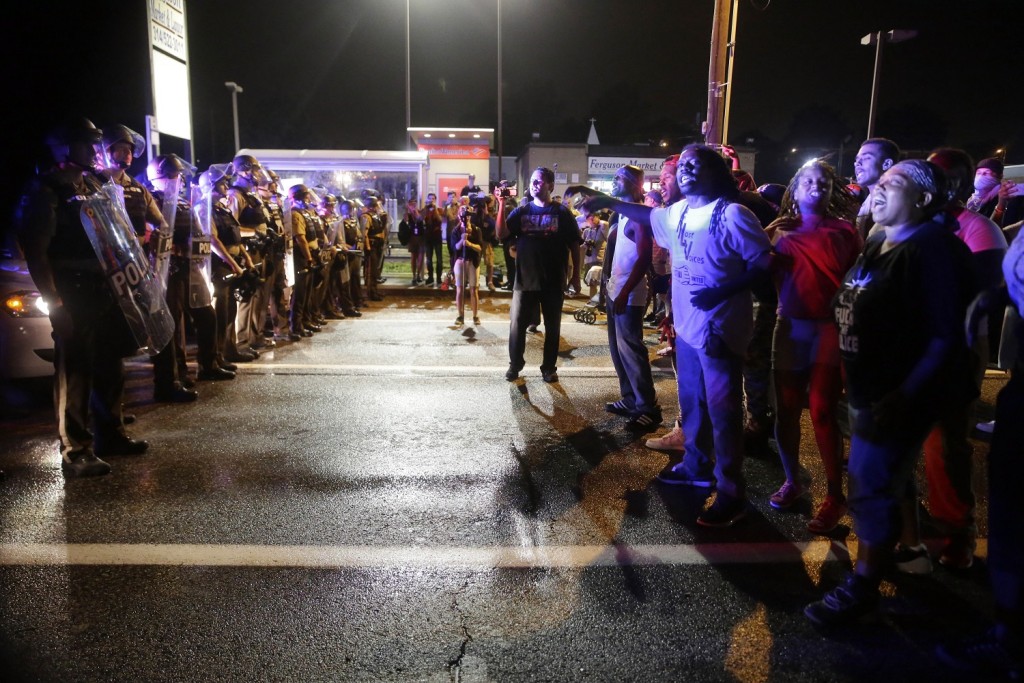
Missed Opportunities?
The time between the announcement and the launch of The Undefeated was one of great social significance, especially in regards to civil rights in America. Michael Brown was shot and killed in Ferguson, Missouri, Aug. 9, 2014. Freddie Gray was arrested in Baltimore on April 12, 2015, and died a week later. And 21-year-old Dylann Roof murdered nine people in the Emmanuel AME Church in downtown Charleston, including the pastor and a state senator. That was June 17, 2015, a year ago Friday.
Last year was also a monumental year of milestones. It marked 50 years since the march from Selma, since Malcolm X’s assassination, since the Watts riots. A group of writers had already been hired on for The Undefeated, specifically for moments like those, but had no platform yet on which to make their voice heard.
Staff writer Justin Tinsley, 30, had been brought aboard in January 2015. A graduate of Hampton and the Georgetown sports management program, he had the frustration of the perfect platform, still unrealized.
“There were so many things that happened last year that you wanted to speak on, and speak on in the moment as well,” says Tinsley.
Merida wasn’t missing these events at all — he was in the thick of covering them for The Post. He doesn’t rue the missed opportunities from The Undefeated’s standpoint, stressing the need for an organizational structure to be in place to cover things the right way.
“The truth is, the stories never stop,” he says. “Because we live in this world, and there’s always going to be another Ferguson, another Missouri.”
Or, as happened two weeks ago, the death of a black American icon.
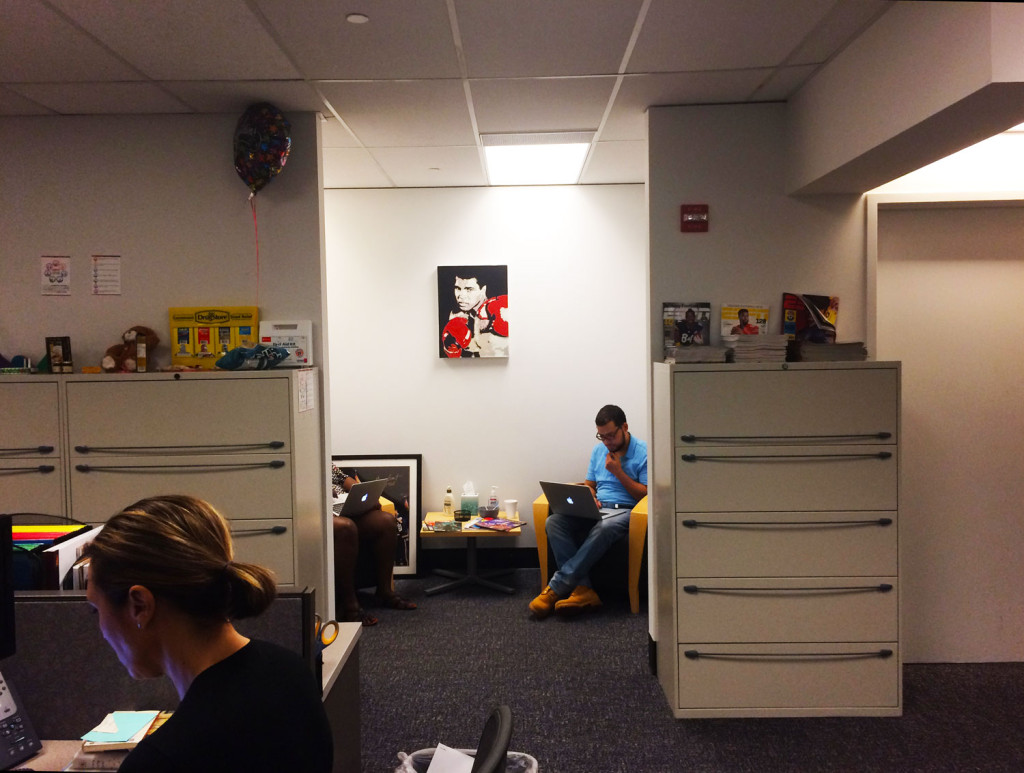
The Greatest
The first huge test for the site came early, with the passing of Muhammad Ali. It’s hard to imagine any single figure who better embodies the intersection of race, sports and culture than the legendary boxer. Photos of a number of black athletes adorn the walls of The Undefeated’s offices, but there are more of Ali than the rest of them combined.
For many on staff, the connection to Ali was personal.
“I’m old enough to remember the first Fight of the Century,” says senior writer Michael Fletcher, who was in middle school in New York at the time, listening on the radio to the fight taking place across town at Madison Square Garden.
“I’m taking it like it’s the oracle speaking,” he laughs.
Fletcher and Wise made a pair of trips to Louisville immediately after Ali’s death, then again for the funeral. Their anecdotes from the experience are evocative of the legend of Ali himself — reminders that he was one of the few stars of popular culture truly larger than life.
“Everyone had their ‘When I met Muhammad’ story,” says Fletcher.
“I met too many cousins to believe they were all cousins,” adds Wise.
Ali’s death, and the media reaction to it, gave the Undefeated a golden opportunity to show what it was all about. The site’s coverage was extensive and far-reaching, and writers spent most of the day live-blogging the sprawling, star-studded memorial service.
Back at the office, Fletcher’s final thought on the matter as he remembers The Greatest might be his most fitting.
“If you would have said in 1965 that Ali would have been the one to bring all the races together …” he shakes his head wistfully as the sentence trails off into the air.
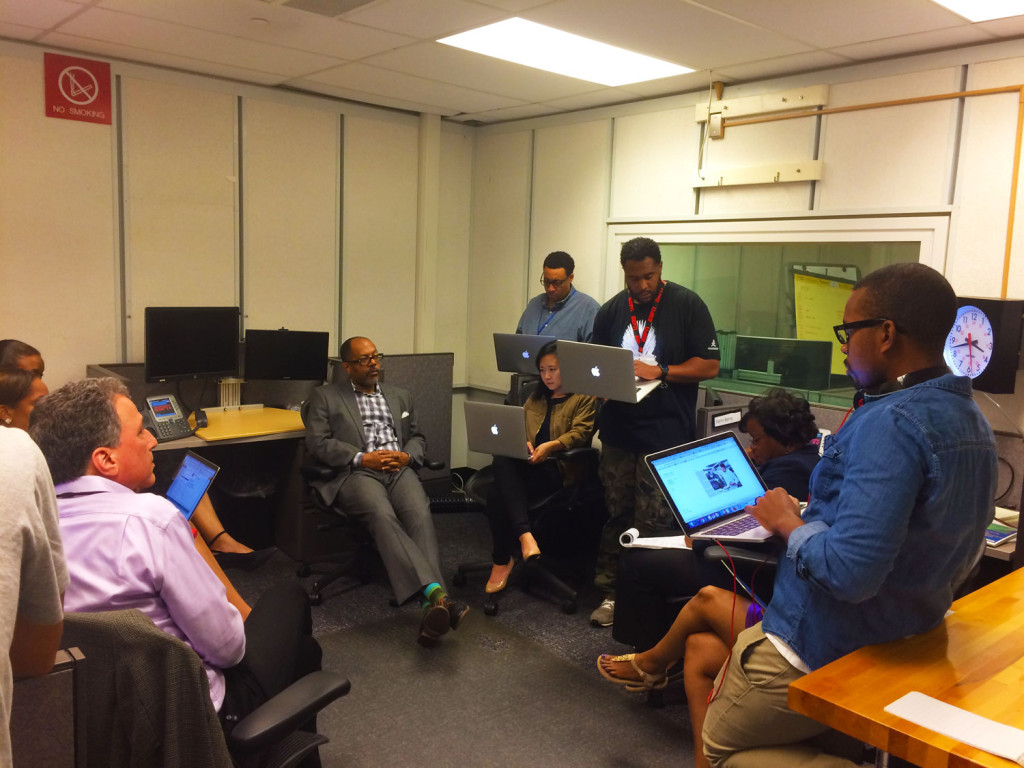
Black Grantland
The Undefeated presents itself as the intersection of race, sports and culture. But publicly, more than anything, it’s been called the Black Grantland.
“Black Grantland” was a Whitlock term, one he used when he first announced the project to the proprietor of Grantland itself, Bill Simmons, on the latter’s podcast back in August 2013. While the current staff doesn’t embrace the comparison quite so fondly, they don’t reject it outright, either.
“The biggest difference is that Grantland, outside looking in, was very much a separation of church and state,” says Kelley L. Carter, a senior culture writer who has worked at both Ebony and BuzzFeed. “They were very loosely connected to the mothership that is ESPN. Whereas The Undefeated, we’re very much integrated.”
But Carter finds herself using the cache Grantland built to try to describe the type of journalism she is aiming for.
“One the other hand, because we’re a startup, saying, ‘Did you read Grantland? Were you a fan of that?’ I’ve often used that when talking to people,” she said.
Merida seems to want to avoid both halves of the label as the site finds its sea legs.
“I’ve said what I wanted to say about it, which is that we shouldn’t be the black anything,” he said. “I think we’re our own thing, like every other entity out there.”
Perhaps just as important as producing thoughtful pieces on race, sports and culture, The Undefeated is a place where professional journalists of color have a space of their own. In journalism, and especially in sports journalism, demographics trend very male and very white: SB Nation’s publication of an ill-thought out and poorly vetted longform piece about Daniel Holtzclaw — a police officer and former college football player convicted of abusing his power to sexually assault a series of black women — triggered an internal review, which revealed that SB Nation was 89 percent male and 87 percent white.
“It’s great to go into a newsroom where the dominant population are journalists of color,” said Merida, who hasn’t experienced such an environment since helping run a black student newspaper at Boston University in the 1970s. “I’ve often thought back to that experience as we’ve developed The Undefeated … We didn’t know what we were doing — we know a lot more now, because we have experience we didn’t have when we were students — but we were experimenting.”
Carter has worked largely in predominantly white newsrooms, and The Undefeated allows her a chance to not have to tailor, edit and explain every little bit of language for a broader audience in a way that takes away from her writing.
“I personally feel that everything that I’ve done career-wise has kind of prepared me for this very specific role,” she said. “When I first started having a conversation with ESPN about this job, I knew that I would have a place here, and that I would be able to really kind of help develop a beat and a way of covering things that nobody in Bristol would have thought about covering before.”
Such topics include Carter’s feature on EJ Johnson, Magic’s Johnson’s son, who did not follow in his NBA footsteps, instead becoming a reality television and fashion star. She defines her dream project as a deep dive on LeBron James and his quest to do whatever he’s done in the NBA in the world of Hollywood, taking the focus entirely away from basketball.
“We’re not afraid to try,” says Merida. “We’re not afraid to fail. It’s a place without fear right now, I think. We’re having fun. We’re not perfect every single day. We’re trying to get better every day.”
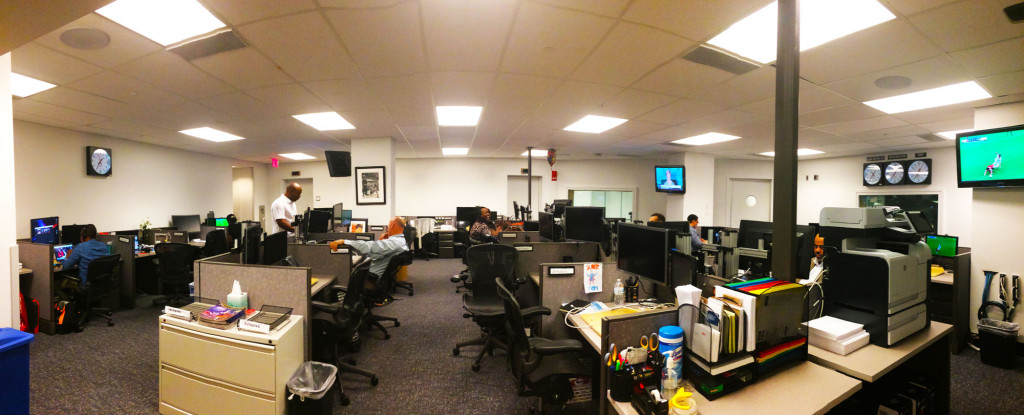
Defeats
There will be growing pains. Just Wednesday the site published what some believed a needless redemption piece about Jameis Winston, the Tampa Bay Buccaneers quarterback whose sexual assault charge while he was at Florida State made national headlines. The piece went out of its way to mention that the charge was dropped, without going into any further detail, quickly pivoting to focus on his charity work with kids as he enters his second season.
The gloss-over drew the ire of sites such as Deadspin and Slate, providing a reminder that The Undefeated may suffer the same type of blindness that many sports outlets do, especially those with business ties to the leagues they cover.
“It’s a site that’s also concerned with black uplift, which is very important (there’s even a section of the site called The Uplift), so there might be a thing — especially when they look at black athletes — where they see a redemption story that isn’t there to be had,” says Howard. “That’s going to be a problem that they’re going to have to deal with: Black people (expletive) up too.”
But Howard doesn’t necessarily see The Undefeated as a place that churns out inimical work. It is, after all, owned by ESPN. ESPN broadcasts, muted, on one overhead newsroom monitor, ESPN2 on the other. ESPN Magazines lie in stacks atop a file cabinet in the entryway. The offices are housed in the ABC News building downtown, which also hosts “Pardon The Interruption.” The fifth-floor workspace has a few big sound studios surrounding the cluster of cubicles, a reminder that it was once an ABC Radio station, all of the above nestled under the larger Disney umbrella.
“For real adversarial reporting at ESPN, you go to Outside the Lines, or the Magazine,” Howard says. “The majority of ESPN is not built to, and not supposed to, really challenge the institutions which it covers, because it takes money from them.”
Nevertheless, the Winston piece serves as a jumping-off point for potential growth and further exploration into types of stories such a site could exist to write.
“It has to be a place brave enough to critique a black athlete,” says Howard. “It can’t be a place where black athletes go for press releases.”
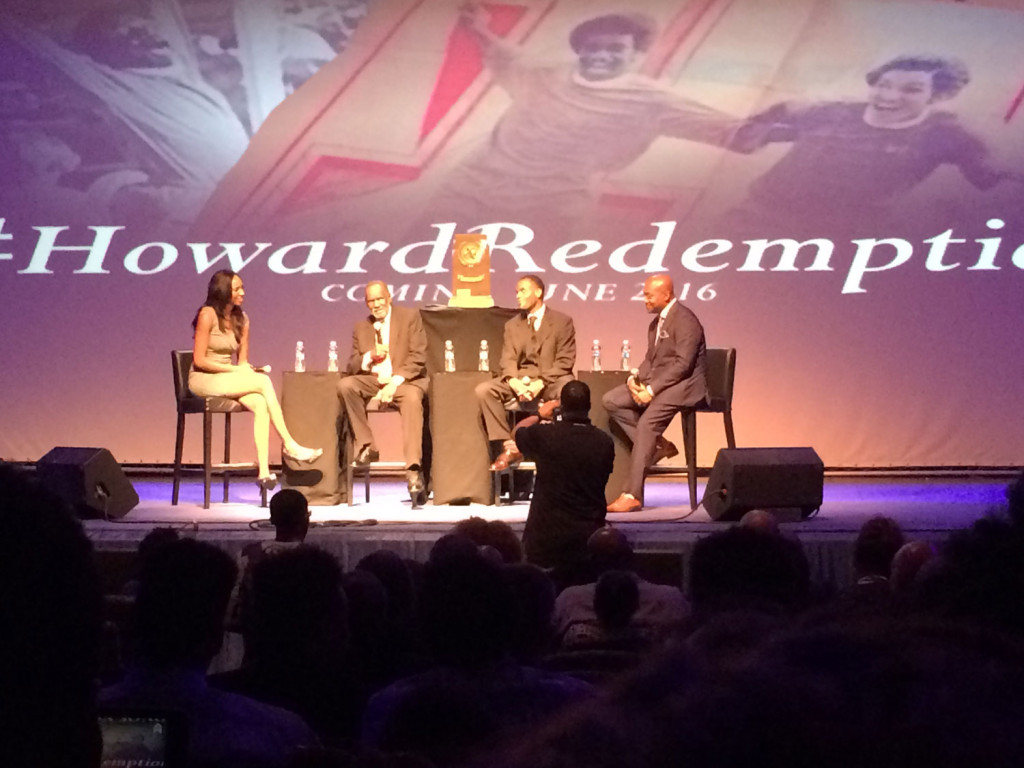
Redemption Song
As part of The Undefeated’s rollout, the site features a collection of Spike Lee’s Lil’ Joints — short films telling stories that fit the site’s mission. One, which debuted with the site, tells the story of the Howard University soccer team, the first HBCU team to win an NCAA championship, back in 1971. But the title was stripped after two players were deemed ineligible for not taking the proper entrance exams and two others were found to have played amateur soccer in the offseason.
Sports Illustrated senior soccer writer Grant Wahl called the infractions “misdemeanors that were treated like felonies.” The penalties influenced each of the next two years, costing Howard a chance at the 1972 title and restricting them from postseason play entirely in 1973. But three years after the initial joy, Howard got its redemption song.
Three years after its own inception, after plenty of bumps and bruises and doubt that it would ever even see the light of day along the way, The Undefeated has found redemption in its very existence. We can only wait to see what it will do with it.





